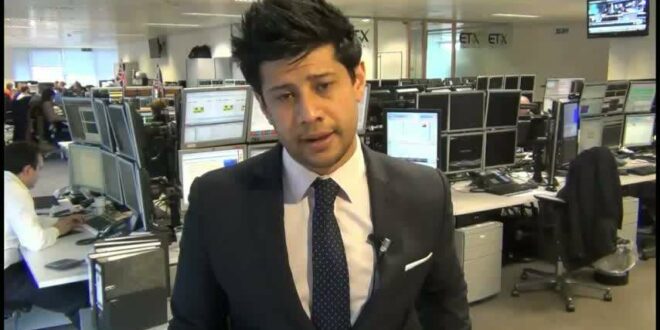March 1st, 2013, Daily Market Bite from Ishaq Siddiqi Market Strategist
[fve]http://www.youtube.com/watch?v=ym_TtSPojtk[/fve]Weak Chinese PMIs indicating a slowdown in the world’s second largest economy together with the US sequesters kicking off as US lawmakers failed to pass two bills on Thursday. European stock markets are feeling the heat as a result, pressured further by softness in Asian markets overnight.
China manufacturing slowed last month with the PMI coming in at 50.1 a touch below expectations at 50.4. But the index remains above the 50 mark – readings above 50 indicate expansion whilst readings below indicate contraction. This is the fifth consecutive month that it printed above 50, so although traders are not impressed by the figure, it’s not enough to turn bearish on Chinese growth.
In the US, the Senate failed to pass two bills to prevent spending cuts which start today. This comes a day after weaker US 4Q GDP, raising worries about the US economy. The cuts will be gradual unlike the fiscal cliff that was avoided at the start of 2013. That said, if US lawmakers fail to find ways to agree on certain measures, they risk shaving around 0.5% of GDP this year and possibly next year.
Meanwhile in Europe, the aftermath of Italy’s inconclusive election remains a major headwind though some have noted that there are hopes politicians there are considering the idea of forming a broader coalition. New elections are still on the table too but for now, the situation remains fluid with talks between parties being eyed carefully by the market. The slip in peripheral bond yields in Thursday’s session helps the soothe some of the earlier concerns that the elections will bring about an imminent bailout for Italy and Spain.
Looking ahead, there is a slew of data worth watching as it has the potential to influence price-action; euro zone and UK PMI manufacturing reports, UK net consumer credit and mortgage approvals and euro zone harmonized inflation. We also have euro zone unemployment figures while in the US, we have personal income and spending together with University of Michigan confidence, construction spending and the ISM manufacturing report.
 Asia Finance News Asia finance news, banking, market analysis, business, Forex, trade, Cryptocurrency as it is happening in Asia. Trusted gateway for Asian financial news.
Asia Finance News Asia finance news, banking, market analysis, business, Forex, trade, Cryptocurrency as it is happening in Asia. Trusted gateway for Asian financial news.





